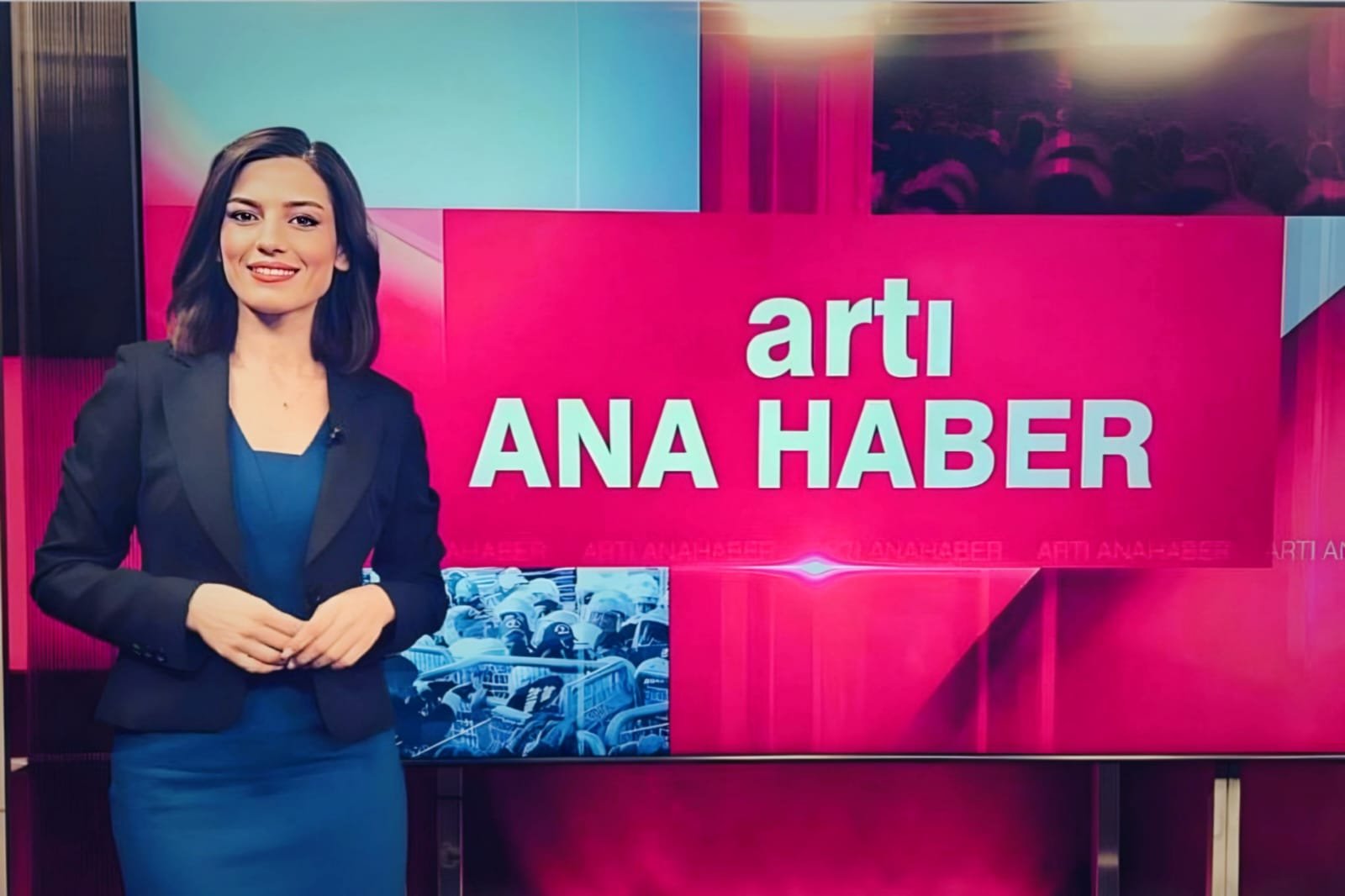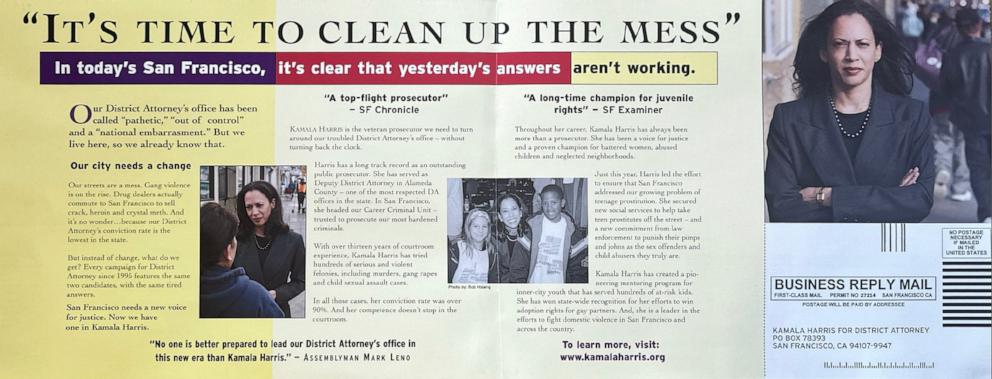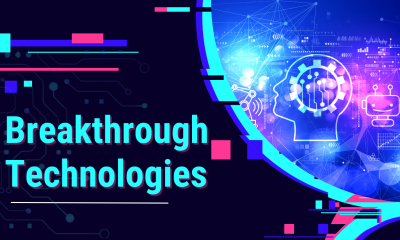Uncategorized
issues Are Never Simple: Exploring Complexity in Modern Problems:
Published
1 month agoon
By
Harry
In an age dominated by fast-paced decision-making and instantaneous information access, it’s easy to perceive complex problems as simple issues with straightforward solutions. Yet, as history and experience repeatedly demonstrate, the issues that shape our lives—social, economic, environmental, and personal—are rarely simple. When we attempt to address these complex issues simplistically, we risk misunderstandings, unintended consequences, and even new challenges. This article will explore why issues are inherently complex, dissect the reasons behind this complexity, and explain why recognizing this complexity is essential for finding meaningful solutions

Understanding the Nature of Complexity
When discussing complex issues, we often deal with “wicked problems”—those without a clear or definitive solution. Such problems are resistant to solutions due to their interconnected and evolving nature, a term first coined in the 1960s by theorists Horst Rittel and Melvin Webber. These problems exist across multiple domains: climate change, poverty, healthcare, and even interpersonal relationships. Here are a few characteristics that illustrate the nature of these complex issues:
- Interdependence: Issues rarely exist in isolation. Instead, they are often tied to a web of other concerns. For example, healthcare is not only about medical infrastructure but also intersects with economics, education, and social inequality. Solving one aspect of the issue may impact another area, making it difficult to find a “one-size-fits-all” solution.
- Subjectivity: People approach issues with different backgrounds, beliefs, and biases. Climate change, for instance, may be viewed differently by scientists, policymakers, corporations, and individuals. This range of perspectives often complicates consensus-building and delays action.
- Unpredictable Consequences: Many solutions produce unintended outcomes. In economics, for example, well-meaning policies designed to reduce inequality may inadvertently impact other areas, such as small business growth. Attempting to address one facet of an issue often reveals additional layers of complexity, challenging even the most well-considered solutions.
- Constantly Evolving: Issues are seldom static. Technology, social norms, and global influences continually change, transforming the nature of problems over time. A solution that worked yesterday may not be effective today, underscoring the need for adaptability.
Examples of Complex Issues and the Pitfalls of Simplification
1. Climate Change
Climate change is among the most discussed global issues today, impacting almost every aspect of life. However, while the topic itself is universally recognized, the solutions are far from straightforward. Consider the following complications:
- Economic Impact: Many industries depend on fossil fuels, and a sudden transition to clean energy could lead to job losses, economic instability, and resistance from influential players.
- Social and Cultural Resistance: People’s daily lives, particularly in developing countries, often rely on non-renewable energy sources. The “just transition” framework, which emphasizes a fair and equitable move to clean energy, illustrates the difficulty of balancing environmental needs with social equity.
- Political Implications: Governments must navigate climate goals alongside political considerations. Commitments such as the Paris Agreement involve complex diplomacy and negotiations, where the interests of developed and developing nations often clash.
Trying to reduce climate change solutions to simple acts, like promoting electric vehicles, overlooks the broader social, economic, and political implications. True change requires a coordinated approach addressing multiple areas simultaneously.
2. Poverty and Inequality
Poverty is another multi-faceted issue often oversimplified in political discussions. It’s tempting to suggest that creating jobs or providing welfare will eliminate poverty, but such solutions often fail to address the deeper systemic issues that contribute to economic disparity.
- Structural Inequality: Many impoverished communities face systemic barriers, such as unequal access to education and healthcare. Addressing these inequalities requires policy reforms in various sectors, including education, housing, and healthcare.
- Economic Cycles: Economic trends, inflation, and employment opportunities heavily impact poverty rates. While employment can help alleviate poverty, economic downturns quickly highlight the fragility of relying on job creation alone.
- Psychological Factors: Generational poverty is often coupled with psychological impacts that influence motivation, decision-making, and self-esteem. Without considering mental health and social support, efforts to reduce poverty may only offer temporary relief.
Poverty and inequality require multi-pronged solutions that address immediate needs while working toward long-term structural changes. Viewing poverty through a narrow lens only results in superficial solutions that fail to address root causes.
3. Mental Health Crisis
The global mental health crisis serves as another powerful example of complexity. Issues like anxiety, depression, and trauma have spiked worldwide, especially in the wake of recent global challenges such as the COVID-19 pandemic. Addressing mental health with a “quick fix” approach, such as prescribing medication or introducing mindfulness programs, only scratches the surface of the problem.
- Social Stigma: Mental health stigma varies widely across cultures and communities, often preventing people from seeking treatment. Efforts to raise awareness and normalize mental health struggles must consider these cultural nuances.
- Economic and Accessibility Barriers: Mental health care remains inaccessible to many due to high costs, limited insurance coverage, and a shortage of trained professionals. Addressing accessibility requires policy changes, investment in mental health infrastructure, and potentially shifting societal priorities.
- Interdisciplinary Factors: Mental health is influenced by numerous factors, including family dynamics, education, physical health, and social networks. Effective solutions involve an interdisciplinary approach that goes beyond clinical intervention.
To effectively tackle the mental health crisis, a holistic approach considering social, cultural, and economic factors is essential. Simplistic approaches are often insufficient and overlook the nuances needed for sustainable progress.
The Risks of Oversimplification
When we attempt to simplify complex issues, we run into several risks:
- Reductionist Thinking: This involves breaking down complex issues into single causes, which often leads to ineffective solutions. By ignoring interrelated factors, reductionism can overlook key aspects of a problem.
- Polarization: Simplified viewpoints can drive polarized opinions, making it difficult to collaborate or reach consensus. For example, in political discourse, reducing immigration issues to “open or closed borders” fails to capture the nuances of immigration law, economic needs, and humanitarian concerns.
- Overlooking Long-Term Consequences: Simple solutions often prioritize immediate results, overlooking long-term consequences. For instance, focusing solely on economic growth may neglect environmental sustainability, ultimately leading to resource depletion and ecological imbalance.
- Perpetuating Stereotypes: When we simplify, we sometimes perpetuate stereotypes. Viewing poverty as solely a result of individual choices, for example, overlooks systemic issues and perpetuates harmful narratives that hinder progress.
The Value of Embracing Complexity
To address complex issues effectively, it is essential to embrace their complexity. Here’s why:
- Encourages Collaborative Solutions: Recognizing complexity often leads to multidisciplinary approaches, encouraging collaboration among stakeholders, including policymakers, scientists, community leaders, and citizens.
- Promotes Sustainable Solutions: When we understand the multiple layers of an issue, we can create solutions that are more sustainable and resilient. Addressing climate change through a balance of economic, social, and environmental factors, for example, promotes longevity.
- Reduces Unintended Consequences: Complexity-oriented thinking considers potential consequences, reducing the likelihood of solutions backfiring. Policies that carefully analyze the interconnections between issues help mitigate adverse effects.
- Strengthens Problem-Solving Skills: Embracing complexity encourages critical thinking, adaptability, and creativity. These skills are essential for addressing future challenges that may be even more complex than those we face today.
Conclusion
The inclination to view issues as simple often stems from a desire for quick, manageable solutions. However, the world we live in is filled with interconnected and constantly evolving challenges. Whether we’re dealing with climate change, poverty, or mental health, these problems demand comprehensive approaches that embrace their inherent complexity. Only by recognizing and respecting the multifaceted nature of issues can we hope to develop effective, long-lasting solutions. In acknowledging that issues are never simple, we open the door to nuanced understanding, empathy, and, ultimately, progress.
FAQs
Q1: Why are some issues considered “wicked problems”?
A: Wicked problems are issues that are complex, interconnected, and difficult to solve because they lack a definitive solution. They often involve competing interests, evolving circumstances, and unintended consequences, which makes finding a straightforward solution challenging.
Q2: Can simplifying an issue ever be beneficial?
A: Simplification can be useful in understanding or communicating specific aspects of an issue. However, it becomes problematic when simplification disregards essential factors, leading to incomplete or ineffective solutions.
Q3: How can embracing complexity improve problem-solving?
A: Embracing complexity allows for a more thorough understanding of an issue’s root causes, interconnections, and potential outcomes. This approach encourages collaboration, innovation, and sustainable solutions that address multiple facets of a problem.
Q4: What are the risks of ignoring complexity in policymaking?
A: Ignoring complexity can lead to reductionist policies that may have unintended consequences, perpetuate stereotypes, or exacerbate the problem. For example, policies focused solely on economic growth without considering environmental impacts may lead to ecological harm.
Q5: How can individuals help address complex issues?
A: Individuals can start by educating themselves on the multiple dimensions of an issue, seeking out diverse perspectives, and advocating for policies and actions that consider long-term and interconnected impacts. By being mindful of complexity, individuals contribute to more informed discussions and solutions.
You may like
Uncategorized
Peggy Ann Fulford: A Tale of Deception and Fraud
Published
4 weeks agoon
November 25, 2024By
Harry
Peggy Ann Fulford, a woman who successfully duped some of the most prominent names in sports and entertainment, is a cautionary tale of greed, manipulation, and misplaced trust. Over the years, Fulford posed as a financial advisor, leveraging her charm and claims of elite connections to swindle millions of dollars from unsuspecting athletes. Her story not only highlights the vulnerability of high-income earners but also underscores the importance of financial literacy and due diligence.
The Rise of Peggy Ann Fulford
Born Peggy Ann Barard, Fulford projected an image of success and sophistication. She claimed to have degrees from prestigious institutions like Harvard University, boasted about her wealth from investments, and presented herself as a philanthropist driven by a desire to help others manage their finances. With this facade, she ingratiated herself with high-profile clients, including professional athletes such as NBA star Dennis Rodman, NFL players Ricky Williams and Travis Best, and others.
Fulford’s pitch was compelling: she would manage their finances for free, allowing them to focus on their careers. She assured clients that she was independently wealthy and simply wanted to help them avoid the pitfalls that often plague professional athletes. Her offer of altruistic financial management sounded too good to be true—and it was.
The Fraudulent Scheme
Fulford’s scheme was as audacious as it was effective. Under the guise of managing her clients’ finances, she gained access to their bank accounts, credit cards, and financial records. She promised to pay their bills, invest their money wisely, and secure their financial futures. Instead, Fulford funneled millions of dollars into her personal accounts to fund a lavish lifestyle that included luxury cars, high-end real estate, designer goods, and extravagant vacations.
Her web of lies was intricate. She created fake email accounts, forged documents, and manipulated account statements to hide her theft. When questioned by clients, she offered plausible excuses or deflected blame. For years, her clients—many of whom had little financial expertise—trusted her implicitly.
The Fallout
The unraveling of Peggy Ann Fulford’s scheme began when her clients started noticing discrepancies in their finances. Ricky Williams, a former NFL running back, was among the first to raise concerns. Despite earning millions during his career, Williams discovered that he was facing severe financial difficulties. Further investigation revealed that Fulford had siphoned off substantial sums from his accounts.
Other clients soon came forward with similar stories, and law enforcement agencies launched an investigation. In December 2016, Fulford was arrested and charged with wire fraud, mail fraud, interstate transportation of stolen property, and money laundering. Prosecutors alleged that she had stolen millions of dollars over a decade-long period.
In January 2018, Fulford pleaded guilty to wire fraud. During her sentencing, the court heard emotional testimony from her victims, who described the devastating impact of her actions on their lives. Fulford was sentenced to 10 years in federal prison and ordered to pay restitution to her victims.
Lessons Learned
The Peggy Ann Fulford case offers several important lessons:
1. The Importance of Financial Literacy
Many professional athletes earn substantial incomes but have limited knowledge of financial management. This makes them prime targets for fraudsters like Fulford. Financial education is essential for high-income earners to protect their wealth and make informed decisions.
2. Due Diligence Is Crucial
Fulford’s clients trusted her without verifying her credentials or monitoring their accounts. Conducting thorough background checks and seeking second opinions from independent advisors can help prevent similar scams.
3. Beware of Offers That Seem Too Good to Be True
Fulford’s claim of providing free financial management should have raised red flags. It is crucial to question the motives behind such offers and seek transparent, verifiable arrangements.
4. The Need for Checks and Balances
Regularly reviewing financial statements and maintaining oversight of one’s accounts can help detect irregularities early. Delegating financial management does not mean relinquishing control entirely.
Conclusion
The story of Peggy Ann Fulford is a sobering reminder of the dangers of misplaced trust and the devastating consequences of financial fraud. Her victims, despite their fame and fortune, were left to rebuild their lives and finances after falling prey to her deceit. By prioritizing financial literacy, conducting due diligence, and maintaining oversight, individuals can better protect themselves from similar schemes.
As Fulford serves her prison sentence, her story serves as a cautionary tale for anyone entrusting their financial future to others. Vigilance and education remain the best defenses against fraud.
FAQs About Peggy Ann Fulford
1. Who is Peggy Ann Fulford?
Peggy Ann Fulford, born Peggy Ann Barard, is a former financial advisor who defrauded professional athletes and celebrities out of millions of dollars. She posed as a wealthy philanthropist offering free financial management services.
2. What crimes did Peggy Ann Fulford commit?
Fulford was convicted of wire fraud, mail fraud, interstate transportation of stolen property, and money laundering. She stole millions of dollars from her clients by mismanaging their finances and diverting funds for personal use.
3. How did Peggy Ann Fulford deceive her clients?
Fulford claimed to be independently wealthy and offered free financial management services. She gained access to her clients’ bank accounts and credit cards, promising to handle their finances responsibly. Instead, she used their money to fund her lavish lifestyle.
4. Who were some of Peggy Ann Fulford’s victims?
Notable victims of Fulford’s scheme included NBA star Dennis Rodman, NFL players Ricky Williams and Travis Best, and other professional athletes and entertainers.
5. What was Peggy Ann Fulford’s sentence?
In January 2018, Fulford was sentenced to 10 years in federal prison and ordered to pay restitution to her victims.
6. What can individuals do to avoid financial fraud?
To avoid financial fraud, individuals should:
- Verify the credentials of financial advisors.
- Regularly monitor their financial accounts and statements.
- Seek second opinions from independent professionals.
- Avoid offers that seem too good to be true.
- Invest in financial literacy.
7. Why are professional athletes often targeted by fraudsters?
Professional athletes are often targeted because they earn high incomes but may lack financial knowledge or experience. Their busy schedules and reliance on advisors can make them vulnerable to exploitation.
8. How much money did Peggy Ann Fulford steal?
While the exact amount is unclear, prosecutors alleged that Fulford stole millions of dollars over the course of her fraudulent activities.
9. What lessons can be learned from the Peggy Ann Fulford case?
Key lessons include the importance of financial literacy, conducting due diligence, maintaining oversight of one’s finances, and being cautious of offers that seem too good to be true.
10. Where is Peggy Ann Fulford now?
As of her sentencing in 2018, Peggy Ann Fulford is serving a 10-year sentence in federal prison.
Uncategorized
Lionel Messi and Inter Miami: 2024 Season Analysis
Published
1 month agoon
November 18, 2024By
Harry
Since Lionel Messi’s arrival in the summer of 2023, Inter Miami has undergone a transformation, both on and off the field. Messi’s impact, coupled with high-profile teammates like Sergio Busquets and Jordi Alba, has revitalized the club’s fortunes and elevated Major League Soccer’s (MLS) global profile.
A Record-Breaking Season
Messi’s first full season in 2024 was remarkable. He scored 11 league goals, often in critical moments, and played a vital role in lifting Miami’s performance. His scoring streak early in the season, including seven consecutive matches with goals, demonstrated his enduring quality at age 37. He also helped guide Miami to their first-ever continental tournament appearance in the CONCACAF Champions Cup, though their journey ended in the quarterfinals against Monterrey.
Beyond goals, Messi’s leadership and playmaking reshaped Miami’s style of play, making the team a contender in the MLS Eastern Conference. However, injuries sidelined him for parts of the season, revealing the team’s dependency on their talismanic forward.
Team Success and Challenges
Inter Miami’s performance improved significantly with Messi, achieving competitive standings in the league. Yet, the team faced challenges in the playoffs, bowing out earlier than expected in a loss to Atlanta United. Despite high expectations, this outcome highlighted the need for further squad depth and strategic adjustments to maximize their potential in future campaigns.
Off-Field Impact
Messi’s presence has also brought unparalleled attention to Inter Miami and the MLS. Attendance at games surged, and the club’s visibility skyrocketed, attracting international fans and boosting merchandise sales. His influence extended beyond soccer, bridging sports and entertainment, particularly in a city as dynamic as Miami.
Conclusion
Lionel Messi’s first full season with Inter Miami underscored his enduring excellence and his ability to elevate a team. While the season fell short of ultimate glory, his contributions have set a strong foundation for the club’s future ambitions in MLS and beyond. Inter Miami now stands poised to further capitalize on Messi’s talent as they aim for more consistent success in 2025.
1. How did Lionel Messi perform for Inter Miami in 2024?
Messi scored 11 league goals and was instrumental in Inter Miami’s improved performance, including leading them to their first continental appearance.
2. Did Inter Miami win any titles with Messi in 2024?
The team made significant progress but did not secure any major titles, exiting early in the MLS playoffs and falling in the CONCACAF Champions Cup quarterfinals.
3. What impact has Messi had on Inter Miami off the field?
Messi’s presence has boosted ticket sales, merchandise revenue, and international visibility for both the club and MLS as a whole.
4. What are Inter Miami’s goals for the future with Messi?
The team aims to improve its squad depth and contend for titles, building on the momentum and global attention Messi has brought.
5. Will Messi stay with Inter Miami beyond 2024?
While Messi’s future plans include the 2026 World Cup, his immediate focus remains on achieving success with Inter Miami. His long-term involvement with the club may depend on its competitive progress and his personal goals.
Messi’s tenure with Inter Miami has reinvigorated the team and energized MLS, marking a significant chapter in his illustrious career.
Uncategorized
Prosecutor News: The Role, Challenges, and Impact of Prosecutors in the Justice System
Published
1 month agoon
November 16, 2024By
Harry
In the criminal justice system, the prosecutor is a central figure who wields significant power and responsibility. As the person tasked with prosecuting criminal cases on behalf of the state or the government, a prosecutor plays a crucial role in ensuring that justice is served. Prosecutors not only represent the public’s interest in enforcing the law, but they also ensure that criminal defendants receive fair trials in accordance with the law.
The world of prosecutorial decision-making, legal proceedings, and ethical considerations is vast, and the actions and decisions of prosecutors can have profound effects on individuals, communities, and society as a whole. In recent years, prosecutor-related news has been a focal point of public attention, particularly in cases involving controversial decisions, prosecutorial misconduct, or significant social justice issues.
This article explores the role of prosecutors in the legal system, recent high-profile prosecutor news, the challenges prosecutors face, the ethical dilemmas they encounter, and their impact on the criminal justice process.

The Role of the Prosecutor
Prosecutors serve as the legal representatives of the government, tasked with enforcing the law and ensuring that justice is done in criminal cases. They are responsible for investigating crimes, deciding whether or not to file charges, presenting evidence in court, and, in some cases, advocating for a sentence in criminal cases. The prosecutor’s job is complex and multifaceted, involving legal knowledge, ethical decision-making, and often a delicate balancing act between advocating for justice and protecting the rights of the accused.
Key responsibilities of a prosecutor include:
- Filing Charges: A prosecutor has the discretion to decide whether to bring criminal charges against an individual. This decision is typically based on evidence, legal principles, and the likelihood of securing a conviction.
- Plea Bargaining: Prosecutors often engage in plea bargaining, where they offer a reduced sentence or charge in exchange for a guilty plea. This is a common practice in criminal law, as it helps resolve cases more efficiently and reduces the burden on courts.
- Presenting the Case in Court: Prosecutors are responsible for presenting evidence and arguments in court to prove the defendant’s guilt beyond a reasonable doubt. They are expected to adhere to the rules of evidence and conduct fair, impartial trials.
- Ensuring Justice: While a prosecutor’s goal is to secure a conviction, they are also ethically bound to pursue justice. This means they must disclose exculpatory evidence (evidence that may prove the defendant’s innocence) and avoid pursuing cases where the evidence is insufficient.
- Sentencing Advocacy: In some cases, the prosecutor will make recommendations regarding sentencing. While their role is not to impose a sentence, they advocate for what they believe to be an appropriate punishment based on the seriousness of the crime and the defendant’s history.
High-Profile Prosecutor News: Cases and Controversies
The decisions made by prosecutors can have profound consequences, which is why prosecutor-related news often garners public attention. Recent cases have highlighted the immense power of prosecutors, as well as the ethical dilemmas and challenges they face.
Case Study 1: The Trial of Derek Chauvin (George Floyd)
In 2021, the trial of former police officer Derek Chauvin, charged with the murder of George Floyd, captured global attention. Prosecutor Steve Schleicher led the prosecution in a case that became a landmark moment in the fight against racial injustice and police brutality. The trial was highly publicized, and prosecutors faced intense pressure to bring justice to the victim, George Floyd, and his family.
The prosecution had to present overwhelming evidence, including the now-iconic video of Floyd’s death, to secure a conviction. In this case, the prosecutor’s role went beyond legal strategy, touching on social justice and the broader issue of systemic racism in law enforcement. The successful conviction of Chauvin was seen as a victory for justice, but it also sparked discussions about how prosecutors should handle cases involving police officers and the complexities of holding law enforcement accountable.
Case Study 2: The Rittenhouse Trial
Another example that captured national attention was the trial of Kyle Rittenhouse, who was charged with killing two people during the protests in Kenosha, Wisconsin, in 2020. Prosecutors in this case faced significant challenges. The case became a flashpoint for debates around self-defense, gun rights, and the militarization of protests.
Prosecutor Thomas Binger came under intense scrutiny for his handling of the case, especially after the jury acquitted Rittenhouse on all charges. Critics of the prosecution argued that the charges were politically motivated, while others contended that the prosecution had failed to adequately present their case. In the aftermath of the trial, the prosecutor’s role was heavily debated, with discussions focusing on the impact of political ideologies on prosecutorial discretion and decision-making.
Case Study 3: The Jeffrey Epstein Case
The investigation and prosecution of financier Jeffrey Epstein, who was accused of running a global sex trafficking ring, also brought attention to the role of prosecutors. Epstein was arrested in 2019 on federal charges of sex trafficking minors, but his case had a long history of being handled by state and federal prosecutors. In 2008, Epstein had pleaded guilty to state charges of soliciting prostitution from a minor in Florida, after a controversial plea deal orchestrated by former U.S. Attorney Alex Acosta. The deal, which was widely criticized, allowed Epstein to serve only 13 months in a county jail while continuing his business operations.
Epstein’s case raised serious questions about prosecutorial discretion, ethics, and the role of power in the justice system. In particular, the 2008 plea deal became a focal point for discussions about how prosecutors handle cases involving powerful individuals. Many felt that the deal was an example of prosecutorial misconduct or favoritism, given Epstein’s connections to high-profile political and business figures.
Prosecutors and the Ethical Dilemmas They Face
The role of the prosecutor involves not just technical legal work, but also navigating complex ethical dilemmas. Prosecutors are ethically bound to pursue justice rather than merely seeking convictions. Their duty is to ensure that the guilty are punished, but also to protect the innocent from wrongful conviction.
Key ethical considerations for prosecutors include:
- Brady Rule: Under the Brady v. Maryland ruling, prosecutors are required to disclose exculpatory evidence (evidence that may prove the defendant’s innocence) to the defense. Failing to do so can result in a wrongful conviction. Prosecutors who withhold evidence for tactical reasons violate the defendant’s constitutional rights.
- Discretion in Charging: Prosecutors hold significant discretion in deciding whether or not to bring charges against a defendant. This can be influenced by various factors, including the strength of the evidence, the severity of the crime, and the potential impact of the case on the community. However, decisions should be made with the goal of achieving justice, not based on personal biases or political considerations.
- Plea Bargaining: Prosecutors are involved in plea bargaining, where the defendant agrees to plead guilty to a lesser charge in exchange for a reduced sentence. While plea bargaining can expedite the judicial process, it can also raise concerns about fairness, especially if defendants feel coerced into pleading guilty to crimes they didn’t commit.
- Avoiding Conflicts of Interest: Prosecutors must avoid conflicts of interest, such as when personal relationships or political considerations influence their actions. Ensuring impartiality is crucial to maintaining public trust in the legal system.
- Public Pressure: Prosecutors often work in the public eye, especially in high-profile cases, and face pressure from the media, the public, or even elected officials. Balancing this pressure with the need for impartial legal judgment can be a difficult ethical challenge.
The Challenges Prosecutors Face
Prosecutors operate under immense pressure, both legally and emotionally. They must ensure fair trials while also balancing competing interests, such as public safety, the rights of the accused, and the desire for convictions. Some of the major challenges faced by prosecutors include:
- Heavy Caseloads: Prosecutors often face overwhelming caseloads, with many handling hundreds of cases at a time. The sheer volume of cases can make it difficult to give each case the attention it deserves, leading to concerns about rushed decisions or overlooked evidence.
- Bias and Discrimination: Prosecutors, like all people, can be influenced by their own biases, whether racial, socioeconomic, or ideological. These biases can impact decision-making, such as whom to charge, what charges to bring, and how to negotiate plea deals. There is growing recognition of the need for prosecutors to be aware of their own biases and take steps to address them.
- Public Scrutiny: Especially in high-profile cases, prosecutors are under constant public scrutiny. While public attention can ensure transparency, it can also place undue pressure on prosecutors to make decisions based on public opinion rather than the merits of the case.
- Resources and Support: Prosecutors may struggle with a lack of resources, both in terms of funding and staff. In many jurisdictions, underfunded prosecutorial offices face challenges in gathering evidence, securing expert testimony, and maintaining the necessary infrastructure to handle complex cases.
Conclusion
Prosecutors play a critical role in ensuring justice is served and maintaining the integrity of the legal system. While they are tasked with holding individuals accountable for crimes, they also bear the responsibility of ensuring that the accused receive a fair trial and that justice is not compromised by bias or prosecutorial misconduct. The recent surge in prosecutor-related news has highlighted the power and influence that prosecutors hold, as well as the ethical and practical challenges they face.
From high-profile cases involving racial justice to complex legal maneuvers in controversial trials, prosecutors are central figures in the criminal justice system. Their decisions can affect not just the lives of those they prosecute, but the public’s faith in the fairness of the legal system. In a time of increasing scrutiny, prosecutors must navigate these challenges with integrity and impartiality, ensuring that their actions are guided by the principles of justice.
FAQs
1. What is the role of a prosecutor in a criminal case?
A prosecutor represents the government in a criminal case, deciding whether to file charges, presenting evidence in court, and advocating for a conviction. They are also responsible for ensuring that the defendant’s rights are upheld and that justice is pursued, not just convictions.
2. Can a prosecutor drop charges once they are filed?
Yes, a prosecutor has the discretion to drop charges if they determine that there is insufficient evidence, or if new evidence comes to light that undermines the case. However, this decision can be challenged in some cases, and prosecutors must be cautious when dismissing charges.
3. What ethical challenges do prosecutors face?
Prosecutors must ensure fairness in their cases, avoid bias, disclose exculpatory evidence, and balance the need for convictions with the rights of the accused. Ethical dilemmas may arise in situations where personal biases, public pressure, or political considerations influence their decisions.
4. How do prosecutors decide whether to offer a plea bargain?
Prosecutors typically offer plea bargains in cases where they believe it is in the best interest of justice, such as when the evidence is strong but the defendant’s cooperation might help with other cases. They also consider the severity of the crime, the defendant’s history, and the potential impact on the community.
5. What happens if a prosecutor engages in misconduct?
If a prosecutor engages in misconduct, such as withholding evidence or making biased decisions, it can lead to wrongful convictions, overturned verdicts, or disciplinary action. Prosecutorial misconduct can undermine public trust in the justice system and has serious consequences for both the prosecutor and the case involved.
Trending
-

 News2 months ago
News2 months agoTechdae.frl: Ultimate Guide and Key Insights
-

 Life Style2 months ago
Life Style2 months agoThe Grand Duke Is Mine: Spoilers and Plot Breakdown
-

 Life Style2 months ago
Life Style2 months agoPonderShort.com: A New Hub for Short-Form Content Enthusiasts
-

 News2 months ago
News2 months agoAviva Taeidkashani: A Rising Star in the World of Art and Design
-

 Life Style2 months ago
Life Style2 months agoZoom Realty: Revolutionizing Real Estate in the Digital Age
-

 Life Style2 months ago
Life Style2 months agoWaethicc: A Global Perspective
-

 News2 months ago
News2 months agoUnderstanding the Concept of “Utanmaz Türklere”
-

 Tech2 months ago
Tech2 months agoExploring breakthroughtechnologies: The Next Frontier in Technology
